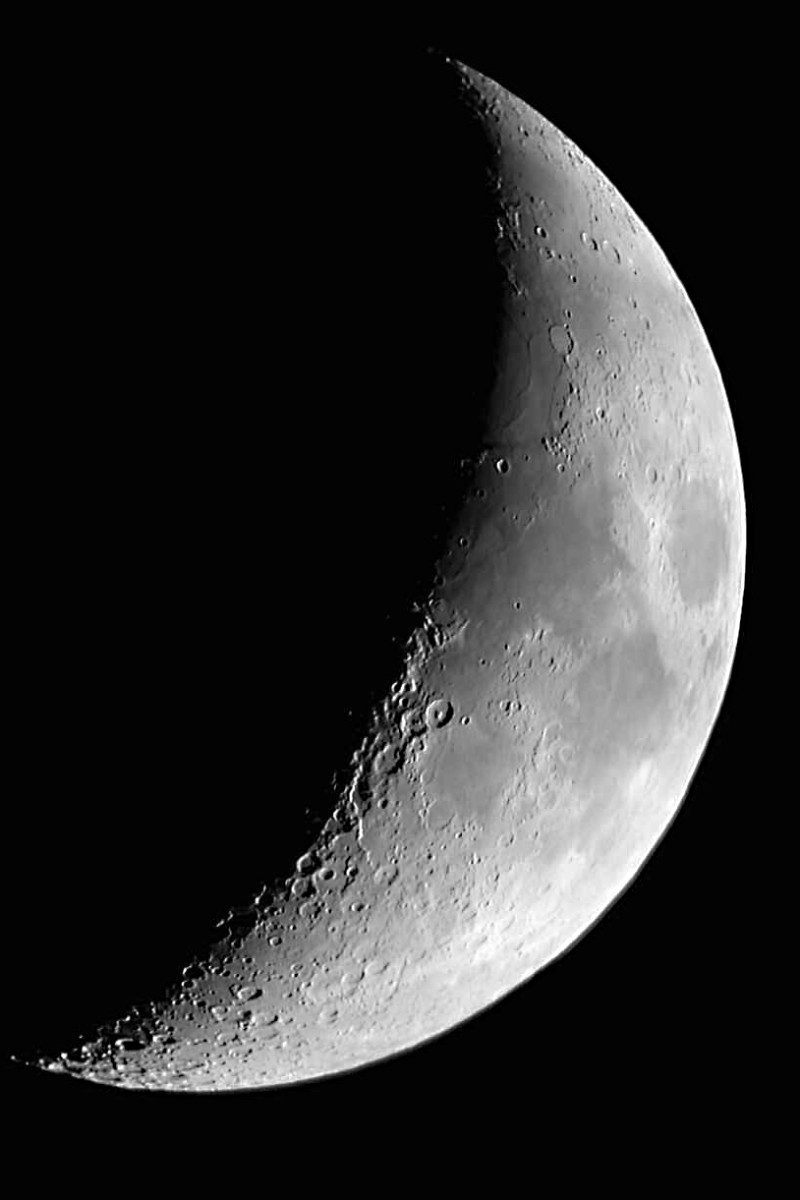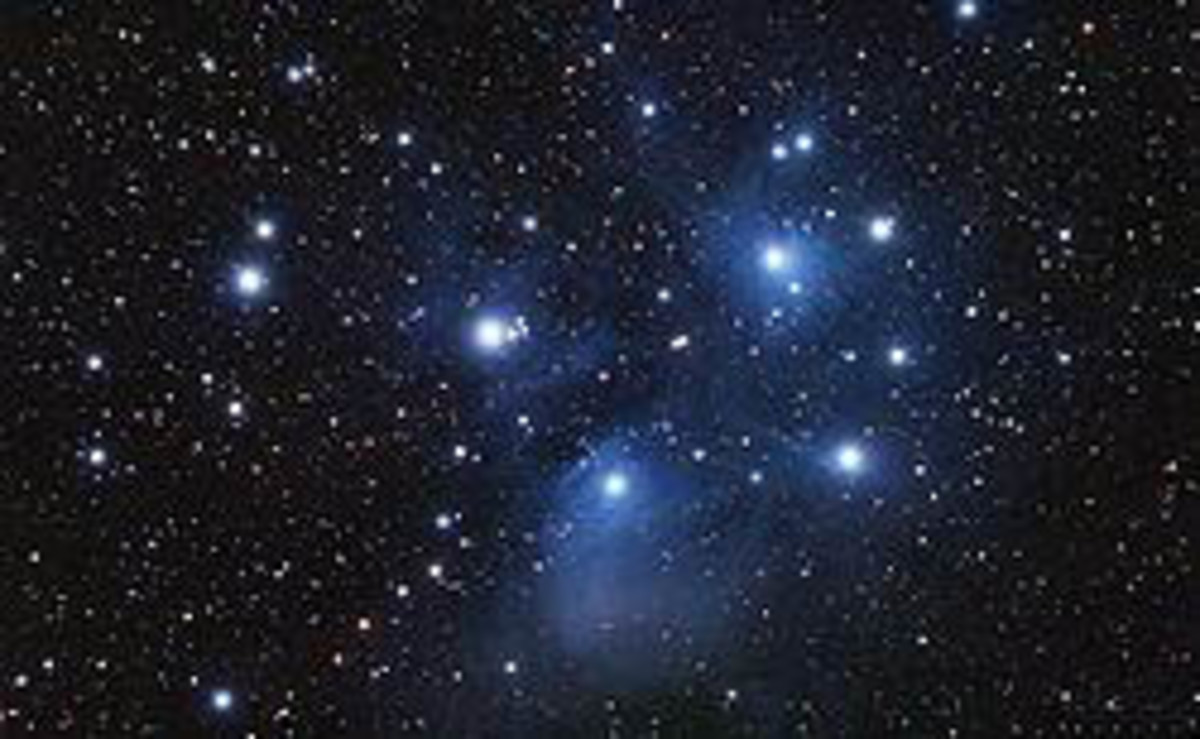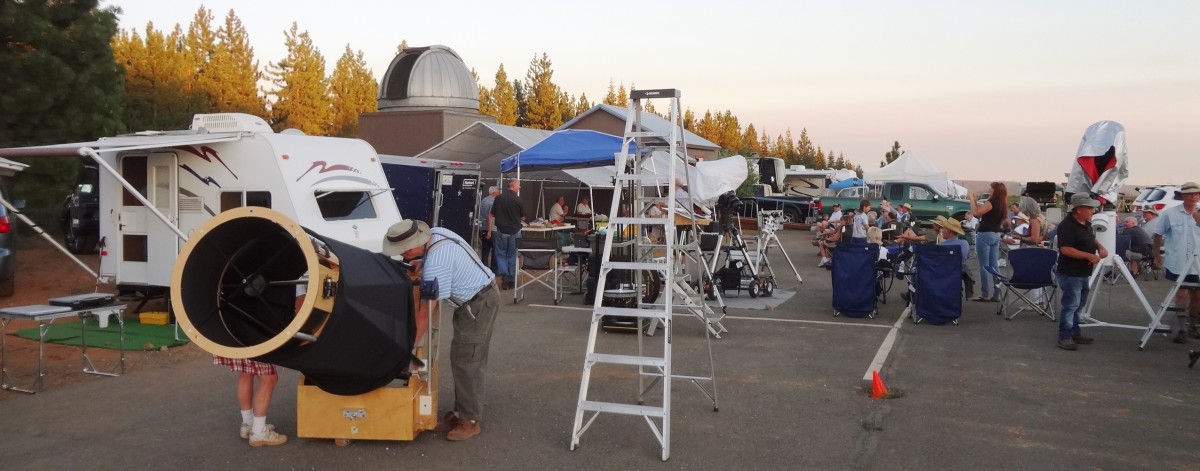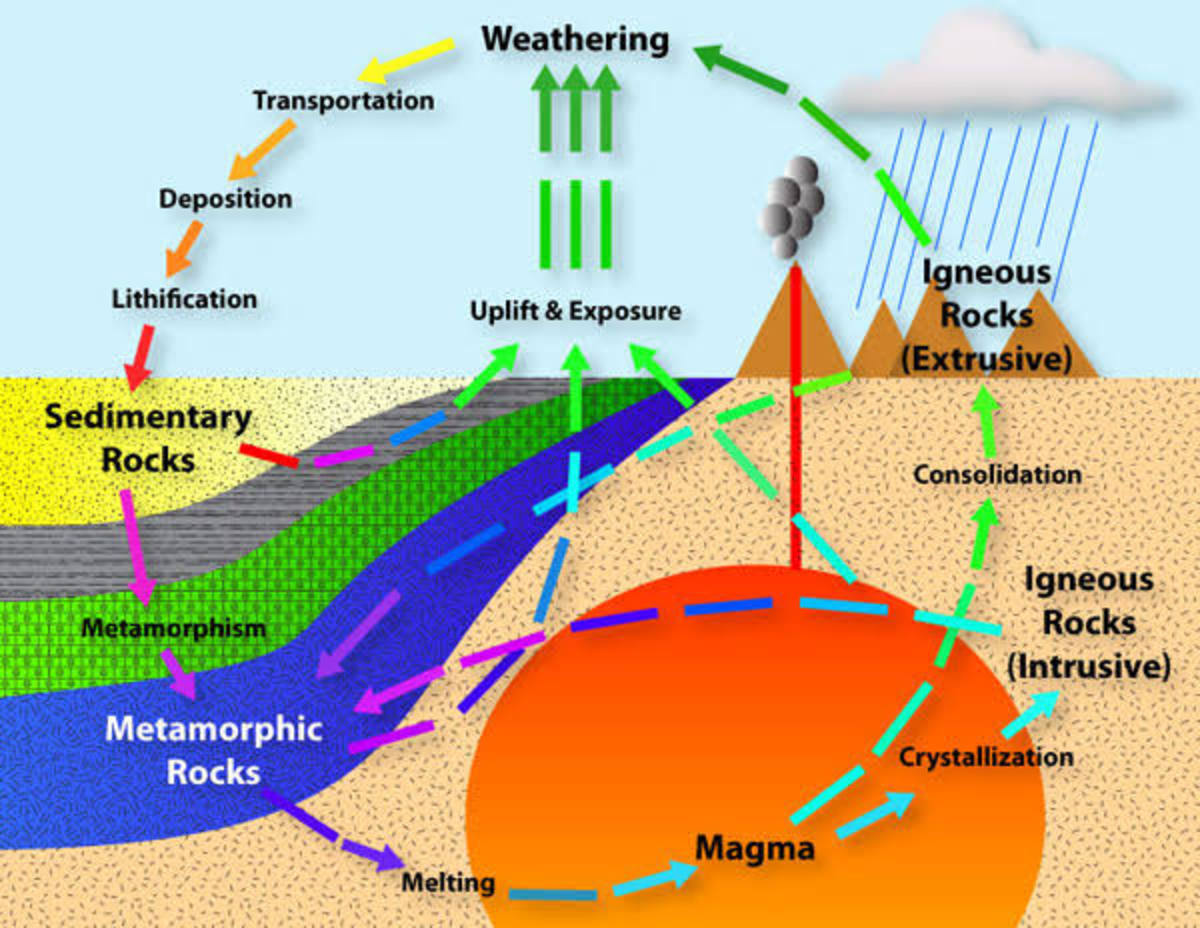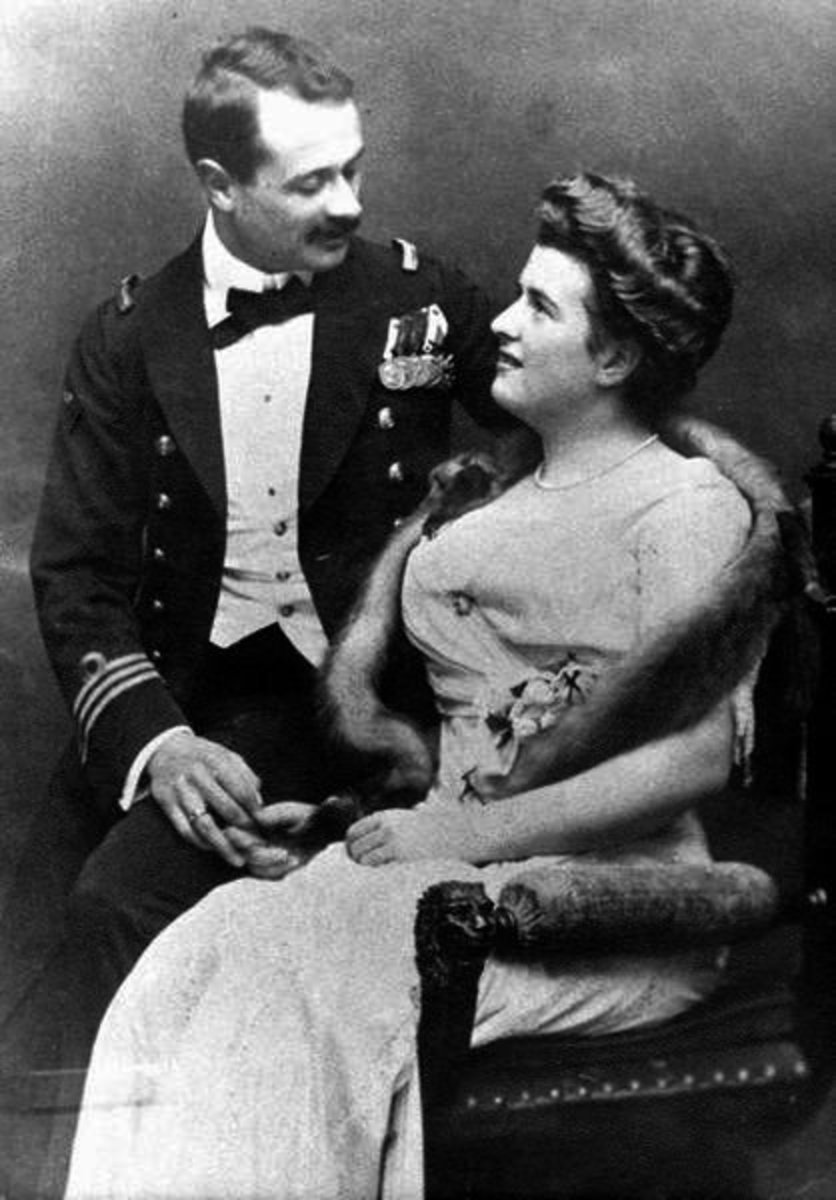Best Astronomy Binoculars
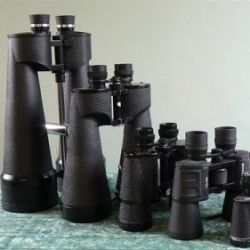
Binoculars for Astronomy: Not just for beginners
If you are new to astronomy--or just looking for a new hobby--then you owe it to yourself to get the best astronomy binoculars you can find. And if you've been gazing into the night sky for some time now with a telescope...well, the information on this lens may just get you excited about the binoculars in your closet.
Don't have a pair? That's okay. After reading this page, you'll know more about what binoculars to buy! You'll also have a pretty good idea just what they can do too.Image Credit: Flickr Creative Commons by jlcwalker
"Astronomy compels the soul to look upwards and leads us from this world to another." Plato
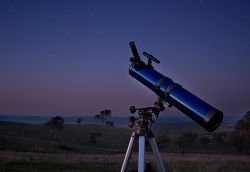
Astronomy Binoculars Versus a Telescope
Advantages of Binoculars
Many amateur astronomers think they should start out with a telescope. While there is nothing wrong with telescopes, sometimes it is better for the beginner to start with an easier instrument. A pair of Astronomy Binoculars fits the bill here.
I was first introduced to astronomy about 10 years ago. My friend had a 10 inch telescope
that vaguely resembled the water heater in my basement. Whenever we decided to use it, an ordeal started. First we had to lug the thing out of its space in the closet and down to wherever we were going to set up for the night. Then came the adjustment period where the temperature of the telescope had to align with the night's temperature to get rid of the 'fog' on the lenses. Finally came the time to find whatever you wanted to view for the night.
My first try was to find the moon--my favorite night-time object. I couldn't do it! I honestly couldn't find the moon even as big as it is through the tiny field of vision of the telescope. After giving me a sigh (with a little chuckle thrown in) my friend handed me a pair of binoculars. Boom--there was the moon in all her glory. And I was in love.
Telescopes have their place in astronomy, don't get me wrong. They are perfect for more in-depth study of celestial objects and for the study of things found farther than a pair of binoculars can reach, but for the beginner--you just can't beat a good ole pair of binoculars! And if you think that the moon is the only thing binoculars are good for, think again. With a good pair of astronomy binoculars you can see star clusters, double stars, comets, and more.
Perhaps the best thing of all about binoculars is that there is no prep time. This makes them indispensable to true-blue astronomers as well. No more dragging out the telescope and spending a half hour setting things up. Who has that kind of time to waste when binoculars are ready to go the minute you are?
Image Credit: Flickr Creative Commons by Ryan Wick
Nikon Action 10x50 Binoculars
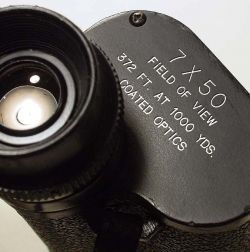
How to Choose the Right Astronomy Binoculars for You
What to Look For in Binoculars for Astronomy
Each pair of binoculars lists two numbers, such as 10x50 or 9x63. This pair of numbers tells you a lot about the instrument. The first number is the magnification. Now at first blush, most people think more is better. But that isn't true--at least not with handheld binoculars. The higher the magnification the more you can see, granted, but more power also means more dancing. In other words, it is hard to hold them steady enough for a clear view of what you are looking at. For this reason, a magnification of 10 is usually seen as the limit for handheld binoculars.
The second number in the equation is the aperture or size of the front lens. The more aperture, the brighter the objects will appear. For astronomy purposes, you want at least 50 aperture. Keep in mind that the larger the lens, the heavier the instrument will be to hold. So once again, bigger is not always better. Comfort plays a part in choosing the right pair, too.
The last number you need to look at is the result you get if you divide the aperture by the magnification. This gives you the exit pupil. Without making a long story out of this, I'll just cut to the chase. People under 30 usually are most comfortable with an exit pupil of 7 or so, while people over 30 might be more at ease with an exit pupil of around 5. It all has to do with our eyes as we grow older.
Beyond the numbers you want to look at things such as weight and adaptability to use with a tripod for longer viewing. You also may want to read some of the reviews on Amazon about the binoculars you are considering before purchasing. (Hint: all of the handheld binoculars on this page have been researched by me and meet my high standards, including great reviews.)
Image Credit: Wikimedia Commons by user Delimata
"Space isn't remote at all. It's only a hour's drive away if your car could go straight upwards." Sir Fred Hoyle
Meade Travel View 9x63 Astronomy Roof Prism Binoculars

My Favorite Study with Astronomy Binoculars - The Earth's Closest Neighbor--The Moon
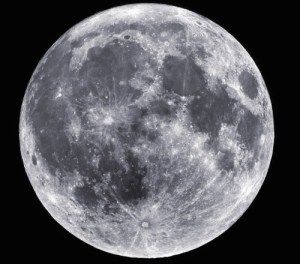
What makes the moon my favorite study? Well, besides the obvious howling properties, there are two main reasons. First and foremost is that of predictability. Most nights the moon is sitting there right where it's supposed to be, waiting for us. Second of all--well, it's the Moon. I may not worship the moon as some pagans do, but I sure as heck admire it.
The moon has something to offer at every phase. Pick a date to start your study, it really doesn't matter what phase the moon is in to begin with. Something I do to keep record of what I see is make nightly sketches. I'm no Rembrandt, but looking back on the sketches still fills me with pride. It helps me remember what is where on the moon too, so my next session can go a little further until I have the whole thing mapped out.
What will you be looking at? Well, the dark areas you can see it the photograph here are called seas, but they are actually flat lava plains. The moon also sports mountains and craters. Each one just waiting for your discovery. To get you started, do you see that small circle toward the bottom of the moon? That is Tycho, a crater. The rays you see leading out from it are seen clearly at the full moon, and rarely seen at other times.
Are you ready for a pair of astronomy binoculars yet?
Image Credit: NASA/Sean Smith
Have You Ever Used Binoculars for Astronomy?
Have you ever looked at the moon through binoculars?
NASA Gives a Tour of the Moon
With binoculars or even a telescope, our view of the moon is still very limited. My thanks to NASA for putting together this short video tour of the moon. It even includes the dark side--that side of the moon never seen from earth.
Want more information on the moon? Check out this great book!
The Downside to Astronomy Binoculars - Yes, There is One
The only downside to using binoculars for astronomy is that a person's arms can grow weary after a long viewing session. This can be partially alleviated with the use of a lawn chair (recliner type) with arms. Simply lean back into the chair and use the arms to rest your elbows while you hold the binoculars. This will not only help your arms, it will also stabilize your view and reduce the dancing vision.
Another great alternative is to purchase a tripod. Please note: a tripod adapter may be needed also.



